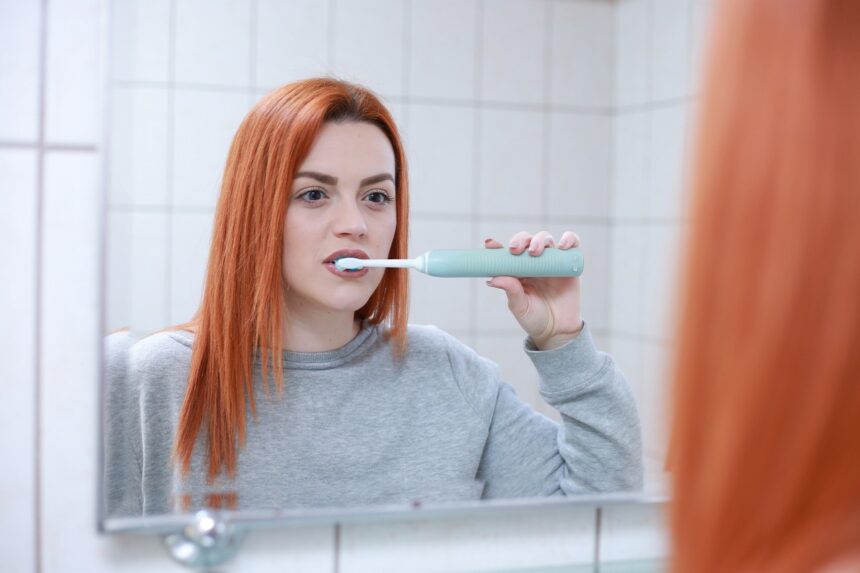It may not be something you’ve thought about in a while, but is the toothpaste you use daily the best option for your dental health and hygiene? Many people use the same toothpaste they did since childhood or the same one their parents used growing up, but dental science has changed over the years. If you’ve been using the same toothpaste for over 30 years, it may be time to consider a switch (or at least carefully look at the ingredients).
Different Toothpaste for Different People

Today, there are hundreds of different brands of toothpaste to consider. Take a look next time you’re in the grocery store or pharmacy. You may be surprised to see an entire section of shelves dedicated to it. There are varieties like:
- Fluoride or Fluoride-Free toothpaste
- Whitening toothpaste with or without baking soda
- Sensitive teeth paste
- Gingivitis & gum disease remedies
- Tartar protection & bad breath alleviation
- Enamel protection & restoration
- Natural & chemical free options
- Organic options
- Fruit flavored and others for taste
- Charcoal and mineral-enhanced
- many more
Understanding your dental history and genetic predispositions for specific dental ailments can affect the best choice for you and your family. For example, if you drink coffee and smoke cigarettes, you may want to consider a whitening dental paste to help keep staining at bay. Or, if you do not have sensitive teeth, it would not make sense to pay extra for toothpaste designed to treat an issue you do not have. The beauty is that any toothpaste is better than none if you’re in a pinch, so you can’t go wrong on a base level. But some may be more optimal for your particular oral hygiene situation.
A good rule of thumb is to look at labeling any toothpaste you’re currently using or one you’re considering. Does it have any certification or seals of approval from the ADA (American Dental Association)? Looking for the official ADA Seal of Acceptance is one way to ensure you’re selecting a toothpaste approved by dentists across the board.
Changing Your Toothpaste as You Age
As we age, our diets and wear and tear can damage tooth enamel over time. Many people who have never had a tooth sensitivity issue may develop one later in life. If you start to notice sensitivity, discomfort, or pain when eating or drinking hot or cold items, you should bring it up with your dentist. A simple change to a sensitive toothpaste like Sensodyne will likely resolve the problem (if mild) in a week or two. If that doesn’t fix your tooth sensitivity, you can discuss the next treatment option with your dentist.
If you used a particularly colorful and sweet-tasting toothpaste as a kid, you probably don’t still use that same brand as an adult. Keeping the same toothpaste throughout your life makes sense for ease. However, as you age and undergo physiological changes, our oral biomes need different and more powerful cleaning agents. Most of us didn’t drink coffee or red wine as adolescents, but as adults, we do. Therefore, we may require a whitening toothpaste with enamel protection, whereas children would not.
Changes in Oral Health? Tell Your Dentist
Tooth sensitivity is a common oral health issue that develops in many people later in life. But there are other signs your oral health is changing, and it may be time to discuss this with your dentist. For example, have you started experiencing bad breath that is worse and lasts longer than previously? This could be a change in your gut or oral biome and may be related to stomach acids or changes in your diet. You, or a loved one, may notice your breath is getting worse, even with regular brushing and flossing. You should discuss this with your dentist. Do they see anything that would cause this change? What do they recommend as treatment options?
See Your Dentist Regularly
Good oral hygiene habits at home start with consistent brushing and flossing day in and day out. But this is not a substitute for visiting your dentist at least two times a year and more if you have issues. Your dentist can see things inside your gums and mouth that you cannot notice and may not feel (like early cavities forming). So, there is no substitute for seeing your dentist, as they are your primary line of defense from severe and potentially expensive oral problems down the line.
Find a dentist in Coney Island NY, right here.


